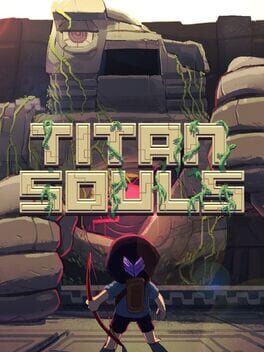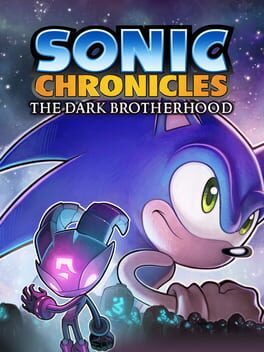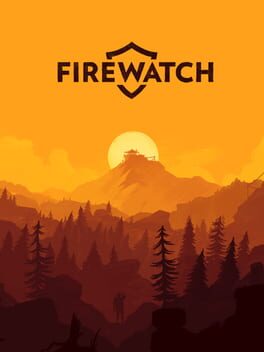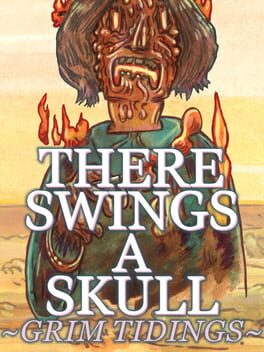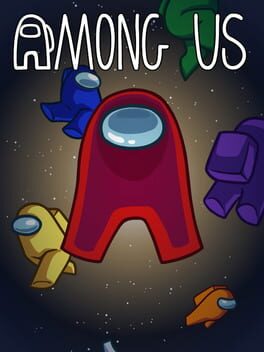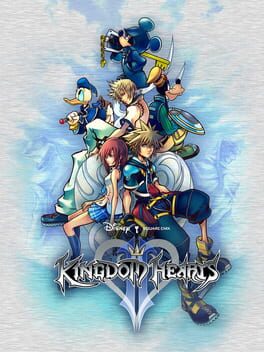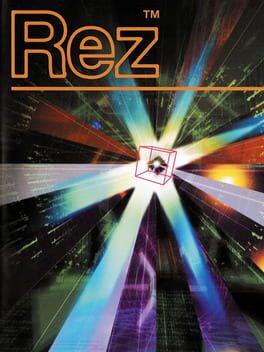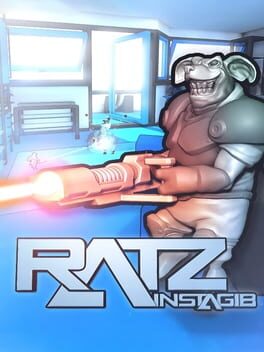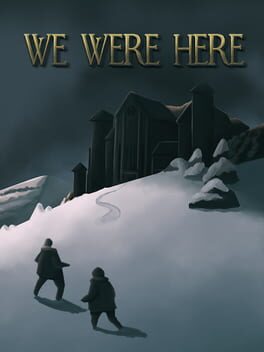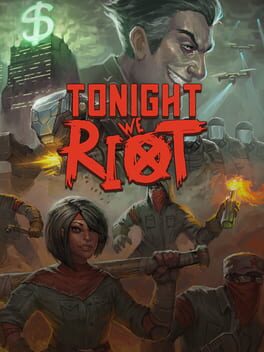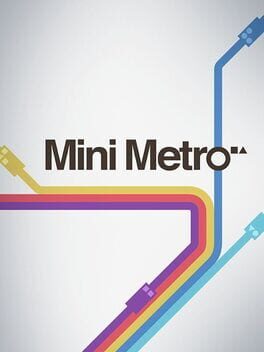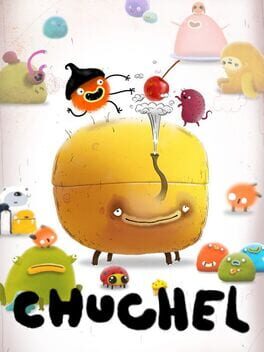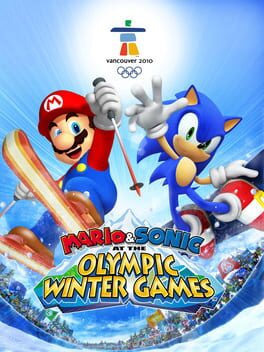gomit
BACKER
2015
It uses its mechanics ""elegantly"" (as in, it's very simple and efficient for the player to understand and use), yet by the later half of the game, its kinda held back from its limited mechanics. This also impacts the boss mechanics: While it makes use of all of the players toolset, some can feel relativitly janky (see lava slime boss). It doesn't help that the bosses dont feel like bosses, but rather like "short super-meat-boy like puzzle levels". By that I mean the player is just trying to quickly go through the first 30 seconds of the encounter and try to hit its weakspot without dying. Doing so otherwise complicates the fight unnecessarly and just makes it way too hard and tedious than it needs to be.
It's an alright game with a cool hyperfocus on one mechanic, but that is pretty much it.
It's an alright game with a cool hyperfocus on one mechanic, but that is pretty much it.
1985
Gruesome imagery flash and clutter the pitch black void, walls rip and tear through the flesh of your being, swift matters of evil sweep across the screens to take a piece of you. Antagonizing through and through, this frustrating self-expression feels riveting to look at and awful to play, as even the weird control layout comes straight outta hell.
[Play it](http://www.playnvg.tk/#!gohell) (EPILEPSY WARNING) if you want to experience this british hellscape from the 80s.
[Play it](http://www.playnvg.tk/#!gohell) (EPILEPSY WARNING) if you want to experience this british hellscape from the 80s.
2016
One of the best narratives I've come across in games. Using the "walking sim" genre as a means to inadvertently hyper-focus on the narrative, environment and setting is genius. Walking through the wildernis while talking with "Delilah" through the walkie-talkie is a suprisingly enganging and cathartic experience, albeit sometimes repetitive during the later half of the game.
At it's core, the game is about escapism and confronting your past and your problems. While I vividly remember being upset and let down at the ending (no spoiler) of the game when I first played it in ~2017, in retrospect cannot find any other ending that ties together the core themes of the story quite as well as the ending found in the retail version.
At it's core, the game is about escapism and confronting your past and your problems. While I vividly remember being upset and let down at the ending (no spoiler) of the game when I first played it in ~2017, in retrospect cannot find any other ending that ties together the core themes of the story quite as well as the ending found in the retail version.
2018
2005
1996
Rating Mario 64 basically boils down to if you played this game in your childhood or not. I get it: It's a landmark title, revolutionized the genre and landscape whil- blah blah blah, you've all read (or heard) the same paragraph over and over.
The controls are good enough, but it's flaws are more emphasized with the questionably designed levels later on. Don't get me wrong - Mario feels great to control and fuck around with, but it all kinda breaks apart when more precise input was expected from me. I don't think the camera is that bad - it just doesn't fit with the designs of some levels. Imma keep it real: I had to resort to a guide a lot of the times. Mostly because the context clues available just didn't really telegraph that much on what exactly you need to be doing.
While I feel this game has definitely aged and has some inherent flaws, in the end it is Super Mario 64. You gotta put respect to it y'know?
The controls are good enough, but it's flaws are more emphasized with the questionably designed levels later on. Don't get me wrong - Mario feels great to control and fuck around with, but it all kinda breaks apart when more precise input was expected from me. I don't think the camera is that bad - it just doesn't fit with the designs of some levels. Imma keep it real: I had to resort to a guide a lot of the times. Mostly because the context clues available just didn't really telegraph that much on what exactly you need to be doing.
While I feel this game has definitely aged and has some inherent flaws, in the end it is Super Mario 64. You gotta put respect to it y'know?
2001
2016
2017
We Were Here sets a strong foundation for an asymmetrical, co-op game. Puzzle-solvin' usually boils down to "communicating something to the other player" - the difficulty (and fun) comes from this. The only truly "difficult" moments come when the game decides to break: For the both of us, the more "grander" puzzles broke down halfway through, fillin' us with frustration. Nearing the end, the walkie-talkie mechanic - while fundamental and unique in its function - ended up being a subject of frustration for both of us.
"Janky, but charming" is a good way to describe this game. While it is free and I definitely enjoyed my time with it, beware that this game's controls are a bit finicky and bugs are prone to happen.
"Janky, but charming" is a good way to describe this game. While it is free and I definitely enjoyed my time with it, beware that this game's controls are a bit finicky and bugs are prone to happen.
2020
The game follows a very game-y level-based structure (think Mario world level select). The player must liberate a specific part of the worker forces in each world. At it's core, the game is about a Workers vs Capitalism Movement that, fundamentally, does not work mechanically or narratively.
Let's get this out first: The Player Controller doesn't work. It feels sluggish, unresponsive and imprecise. The game is fully playable with a controller - don't play it with a controller (Unless you want 0 control over your squad). This isn't a Pikmin, Crowd Control like game you think it is: you are not dependent on them. You can finish each mission just by running to the right, dodging the bullets, avoiding every enemy encounter and yet you will still "liberate" the area of the game. In fact, your allies (or more like minions) are more of a burden to you than actually helping you. The game does not feel like it is designed for a crowd control/management game - it feels more akin to a Beat em' up. Especially later moments of the game require much more out of the player than the controls allow them, making it impossible to perfect a stage as you never have 100% control over your minions. The question is "Why do you even need the workers"? I have yet to find an answer to that. I get that the devs tried to answer that by rewarding the player with some new weapons, but the rewards are locked by the amount of minions you manage to get to the goal line. However, you don't need them, the basic bricks suffice and are legitimately the best weapon in the game. Boss encounters suck: I was able to just stand in one point, move my units to the back and just hit them while they couldn't even hurt me. It tries to add a bunch of new elements to make the game feel more zany and polished, but if the core gameplay doesn't work, nothing will improve or help the game.
Now narratively, it's boneless. It has nothing of substance to say. It is as if someone took the high level idea of "Workers vs Corporations" and just slammed it into the game without any nuances or thought. In the end it feels like they used the theme of the game as a surface-level bait in order to draw people into the godawful gameplay. The ending is also too cheeky and too picture perfect for my taste and just shows that the developers never actually involved themselves into this topic.
It's a lifeless, broken game that is not fun nor engaging to play. Janky games are fun to learn from and it helps to play a lot of these games level out your "gaming palette", but this genuinely wasted my time. Don't play this game.
Edit: Adjusted some writing
Let's get this out first: The Player Controller doesn't work. It feels sluggish, unresponsive and imprecise. The game is fully playable with a controller - don't play it with a controller (Unless you want 0 control over your squad). This isn't a Pikmin, Crowd Control like game you think it is: you are not dependent on them. You can finish each mission just by running to the right, dodging the bullets, avoiding every enemy encounter and yet you will still "liberate" the area of the game. In fact, your allies (or more like minions) are more of a burden to you than actually helping you. The game does not feel like it is designed for a crowd control/management game - it feels more akin to a Beat em' up. Especially later moments of the game require much more out of the player than the controls allow them, making it impossible to perfect a stage as you never have 100% control over your minions. The question is "Why do you even need the workers"? I have yet to find an answer to that. I get that the devs tried to answer that by rewarding the player with some new weapons, but the rewards are locked by the amount of minions you manage to get to the goal line. However, you don't need them, the basic bricks suffice and are legitimately the best weapon in the game. Boss encounters suck: I was able to just stand in one point, move my units to the back and just hit them while they couldn't even hurt me. It tries to add a bunch of new elements to make the game feel more zany and polished, but if the core gameplay doesn't work, nothing will improve or help the game.
Now narratively, it's boneless. It has nothing of substance to say. It is as if someone took the high level idea of "Workers vs Corporations" and just slammed it into the game without any nuances or thought. In the end it feels like they used the theme of the game as a surface-level bait in order to draw people into the godawful gameplay. The ending is also too cheeky and too picture perfect for my taste and just shows that the developers never actually involved themselves into this topic.
It's a lifeless, broken game that is not fun nor engaging to play. Janky games are fun to learn from and it helps to play a lot of these games level out your "gaming palette", but this genuinely wasted my time. Don't play this game.
Edit: Adjusted some writing
2015
The manifestation of simple and elegant design. The foundation is so trivially easy to understand, I am suprised such a game didn't exist before. The UX and UI is child-like, logical and sophisticated at the same time, creating a refined experience for the player to interact with the few systems the game throws around. What makes Mini Metro so compelling is its ability to create an identity for each map by just adjusting a few systems. Whether that be the number of lines you get, the number of bridges, the influx of new passengers, etc.. These "minor" adjustments can change the entire flow of the level, which makes this game so compelling and engaging in the long run. While some one-off mechanics get introduced here and there, it isn't the backbone of what makes it engaging - the developers are confident with the core gameplay loop that they can just tweak some parameters and create a familiar, but different level experience every single time. The use of global transits as the backdrop of each level create a relatable, grounded and almost educational experience.
Although the janky difficulty curve could need some improvement, I highly recommend everyone to try this game out.
Although the janky difficulty curve could need some improvement, I highly recommend everyone to try this game out.
2018
